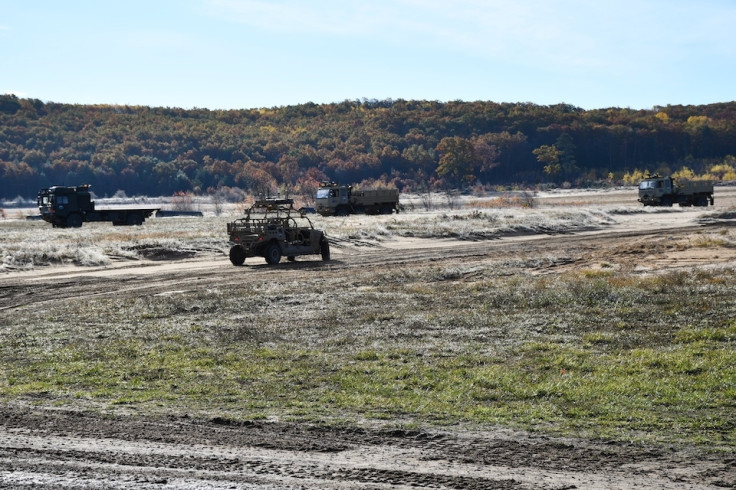UK war robots driven by Xbox controllers will soon be hitting the front lines of battle
Autonomous trucks and hoverbike drones will deliver supplies to the front lines.

The British military is testing a new line of remote 4x4 all-terrain resupply vehicles which can be directed with modified Xbox controllers, government officials said Tuesday.
As part of an investment in new technology by the UK Ministry of Defence (MoD), and in collaboration with the US Army, other projects include an autonomous convoy of trucks and hoverbike drones for delivering supplies to soldiers on the front lines of war.
"Delivering crucial food, fuel and ammo remotely will help save soldiers' lives," said UK defence minister Harriett Baldwin MP following a week-long exercise in the US state of Michigan.
The test was part of a three-year project known as the Coalition Assured Autonomous Resupply (CAAR) which is billed as a way of bringing together the latest in science and technological advancements to help deliver food, fuel and ammunition to troops on the battlefield.
It is spearheaded by the UK government's Defence Science and Technology Laboratory (Dstl).
The Unmanned Aerial Vehicles (UAVs) demonstrated included the British-developed Malloy Aeronautics Hoverbike - an advanced prototype form of quadcopter drone which can reportedly deliver more than 100kg of supplies, using a simple tablet as the controller.
One 4x4 vehicle tested was a "tele-operated Polaris MRZR" fitted with advanced sensors, cameras and GPS, and operated by a joint UK-US trials team. Officials said they used an adapted Xbox gaming controller to remotely drive the 4x4 around the area and simulate an off-road task.
The convoy of high-tech military trucks – said to use integrated robotics to make decisions about speed, steering and other driving functions – could travel at speeds of up to 25mph.
"This is the first time that we have created a UK-US coalition semi-autonomous leader-follower convoy to bring to life concepts which will provide solutions to de-risk the Last Mile of logistics support to the front line," said Dstl lead Pete Stockel in a statement.
"It has been an exciting challenge to drive this forward at pace," he continued. "This could be a step-change in how operational risk might be managed, costs could be reduced and – ultimately – lives can be saved, as a result of harnessing this rapidly-evolving technology."
Army Headquarters Colonel, John McCrann, added: "The British Army is keen to work with its US counterparts to identify where autonomous technologies can benefit UK military capability."






















